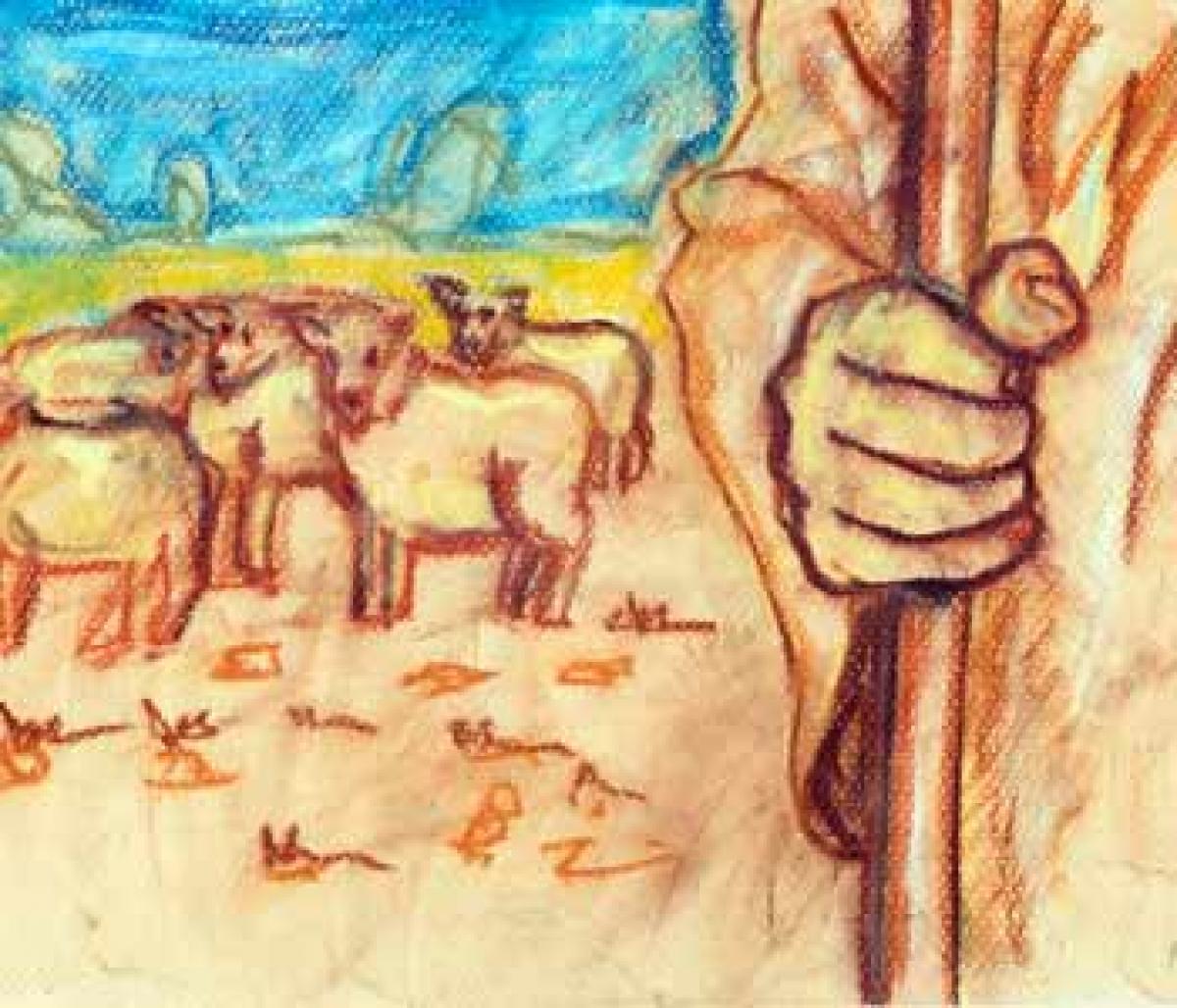Live
- Apple Updates Vintage and Obsolete Product List: iPhone XS Max, 6s Plus Now Included
- Rudra FC finish MFC Women's Elite Division as runners up, take big step closer to IWL 2
- Rafael Nadal gets emotional tribute from Roger Federer
- Big Data in Action: Transforming Financial Institutions Worldwide with Advanced Analytics
- Karan Arjun Re-release: Director Rakesh Roshan Reflects on 30 Years of the Classic
- Secunderabad Cantonment MLA Pays Tribute to Indira Gandhi on Her Birth Anniversary
- SpaceX Starship Launch: Sixth Test Flight Scheduled for November 20
- Top Women Entrepreneurs: Driving Innovation And Growth
- EU FMs discuss Ukraine, no common position on lifting weapons restrictions
- Dilip Joshi issues statement over his alleged physical spat with Asit Modi
Just In
Feed the sheep or shepherd in corporate? An essential HR message

5 Nov 2015 5:24 PM IST

x
Highlights
Proverbs are ‘sayings’ rich in meaning and message, the great men in the past has left for posterity to learn and follow. By and large none of the proverbs have ever gone wrong in conveying its real meaning or the message. They neither grow old nor would they die with time; remain young, meaningful and relevant to all contexts of ‘space, time, and continuum’.
Proverbs are ‘sayings’ rich in meaning and message, the great men in the past has left for posterity to learn and follow. By and large none of the proverbs have ever gone wrong in conveying its real meaning or the message. They neither grow old nor would they die with time; remain young, meaningful and relevant to all contexts of ‘space, time, and continuum’.
 Indeed, some proverbs can go wrong in the corporate ecosystem. It may be amazing, but it is true. The proverb that has gone ‘terribly’ wrong in the corporate world is ‘a rolling stone gathers no moss’.
Indeed, some proverbs can go wrong in the corporate ecosystem. It may be amazing, but it is true. The proverb that has gone ‘terribly’ wrong in the corporate world is ‘a rolling stone gathers no moss’. The above proverb refers to nomads who were always moving around without any responsibilities, knowledge or skills hence they could not establish any culture or civilization of their own. It also refers to stagnation or lack of masterly knowledge if someone keeps shifting their expertise from one area to another. The proverb directly conveys a message to the people that one has to stay in one particular field or area only then they can acquire the required competencies and knowledge otherwise they would become ‘jack of all trades’ and ‘master of none’.
But the proverb ‘rolling stone gathers no moss’ does not have right fitment in the corporate world. The ‘success’ is known and possible in corporate only to those who are exactly like a ‘rolling stone’. In fact, in corporate, the ‘rolling stone gather more moss’.
If someone have worked in different fields even for a limited period of time, those people are considered to be the most competent than those who does not have such exposure. A mere exposure in many fields can make one competent in the corporate world. Or in other words, ‘jack of all trades’ is the most wanted in most corporate than ‘experts’ or ‘specialists’.
Such ‘master of none’ is popularly and affectionately referred as ‘people managers’ by most corporate and it’s HR. Most corporate gives a lot of importance to people managers as they believe that tasks can be accomplished only by people managers. The salary paid to the people managers is far more than the specialists’ in most instances.
A perfect ‘people manager’ is the one who knows only to just ‘shift’, ‘rotate’ and ‘revolute’ people in the ‘work space’ and achieves some results through the arithmetic of ‘permutation and combination’ or ‘trial and error’ possibilities. Unfortunately the organization would love to describe such achievements as the outcome of ‘highly innovative’ approaches of these managers.
When one would duly qualify for the best people manager position/title? When an employee became a ‘sage’ by ‘renouncing’ his or her knowledge and core expertise’ and become a ‘generalist’ and a ‘global’ visionary, the corporate would grab them for ‘people manager’ job.
The interesting twist or difference between a ‘real sage’ and ‘corporate sage’, the people must know in the right perspective. Man becomes a ‘sage’ when he renounces the materialistic world and sharpens in his/her knowledge & wisdom. Whereas, the evolution of the corporate ‘sages’ (people managers) are depends on their quick ability to renounce the ‘knowledge and wisdom’. That would make them a globalist. Once they renounce their core knowledge, they would become ‘people managers’.
The irony is that the real sages (sages of ancient days) become poor when they acquire knowledge whereas the corporate sages become rich when they loose the knowledge and become people managers.
The HR must seriously ask the question as what are the core competencies the people managers display and how relevant such competencies are for the organization.
While feeding the shepherd, also feed the sheep as they are only going to yield you milk, milk products and fur.
More On

Next Story
More Stories
ADVERTISEMENT
© 2024 Hyderabad Media House Limited/The Hans India. All rights reserved. Powered by hocalwire.com






